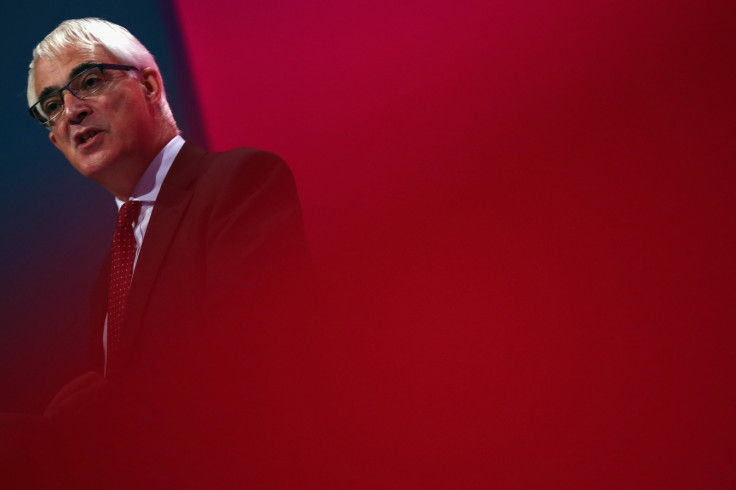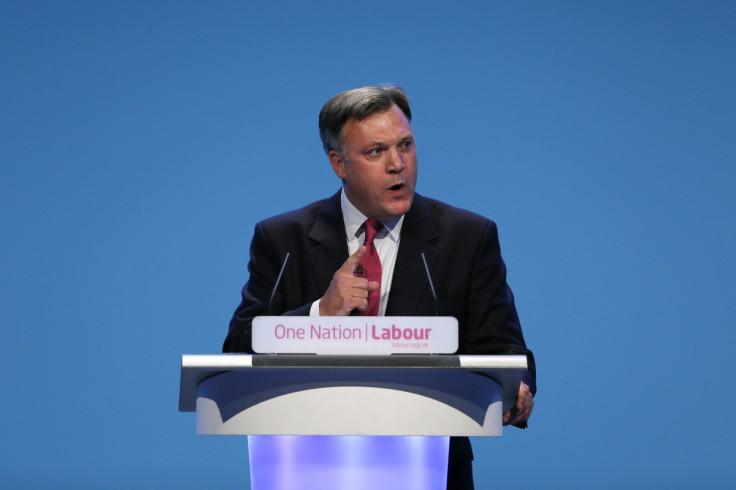Alistair Darling Resignation: A Future in Football Management or International Aid?

For a man who has faced down two of the greatest threats the UK has faced in its whole history – the 2008 financial crisis and the Scottish referendum, Alistair Darling faces the prospect of having an awful lot of spare time on his hands. So what might he do next?
Could Darling now be ready to "spend more time with the family?" It would certainly be understandable - if not the best possible use for the man's undoubted skill and experience.
IBTimes UK tried to find out what might be next for Darling by speaking to social policy guru and Respublica director Phillip Blond.
His suggestions included taking charge of professional football and even gleaning inspiration from Gordon Brown for a total image overhaul.
Darling has been defined by major events in which he played significant roles.
First there was the 2008 financial crash, when the catastrophic meltdown of the UK economy looked briefly like a real possibility. Then, earlier this year, there was the No campaign victory in the Scottish Independence referendum, which had threatened to break up the UK.
So will Darling be able to escape the shadow of such epoch-shaping matters?
Worth banking on a financial path?
Blond said a directorship at an international bank may not be option for Darling, like it is for many former senior MPs.
"The Trouble for Darling with banks is that he's a status quo option in an industry which can no longer afford the status quo," he said.
"He will have to reinvent himself to give credibility to his position - he should be forced to do it. Gordon Brown did something similar with his intervention in the independence debate and Darling should look to him as an example.

"He's not a transformational person, he manages well what he's been given. It was noted he could replace Ed Balls – another person trapped by the past. To escape this fate, Darling is going to have to put himself in a new and uncomfortable position."
What the former chancellor has shown is that he is good at crisis management, such as when the banks were laid out on the resuscitation table during the financial crisis. But being a good manager may also count against Darling, it seems.
Blond criticised the relative lack of meaningful reform to have emerged from Darling's stewardship of the economy through stormy waters.
"I think his legacy on the one hand is very positive and on the other hand negative," he said. "Darling acted decisively during the financial crisis and nobody has come up with a creditable alternative version of what should have happened.
"But no proper reform has emerged from his thinking and it needs to be done. If I was being harsh, he's a technocrat. He's an effective macro-manager. But he's not a reformer and there's no evidence of leadership through vision. Can he reinvent himself for something new?"
Alistair Darling football manager
There is also the question of what Darling's legacy shall be. He has faced down two leviathan-sized national threats but where is the reward?
Alistair Darling will have to reinvent himself to give credibility to his position - he should be forced to do it. Gordon Brown did something similar with his intervention in the independence debate and Darling should look to him as an example.
Since Scotland voted to stay together, support for Labour has tanked, which is placing in danger the party's prospects at next year's election. On the economy, total meltdown was averted in 2008 – no cash machines stopped working, for instance – but the recovery since then has been slow and painful.
A future as a sort of super-manager at a large organisation might be in store of Darling, if he chooses to accept that fate, said Blond.
"He [Darling] is a very straight forward and decent man. His macro-management CV is an 'A'," he said.
"We know football is relatively badly managed, so he could go in there. Or some role in international development or aid programmes would work well too. Third-world countries are in need of a 'clean pair of hands' to do honest and accurate work. And I think he would enjoy it."
So there is a future for Darling after frontline politics - and perhaps one he did not have in mind.
© Copyright IBTimes 2025. All rights reserved.






















